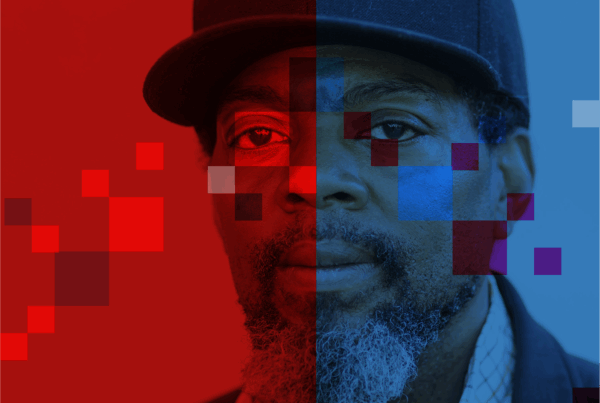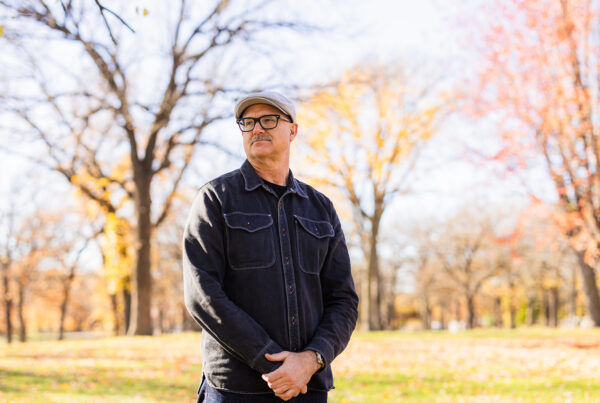I just watched five episodes of Dog the Bounty Hunter on YouTube to try to get a sense of how bail bond agents are portrayed to the American public. In case you’re not familiar, the A&E series Dog the Bounty Hunter chronicled the business affairs of Duane “Dog” Chapman, a bounty hunter and commercial bail bond agent in Hawaii. Each episode includes a “fugitive recovery,” where Chapman and his team seek to locate and detain someone who had their bail paid by a professional bail bond agent but had not appeared in court as required.
Chapman and his team are documented making phone calls and plotting out ways to identify the whereabouts of suspected fugitives. The events of his office are sensationalized with montages of people preparing for their recovery missions by strapping on paramilitary tactical vests and hip-holstering fire extinguisher-sized canisters of bear spray. Meanwhile, the show’s producers play this all to dramatic effect with shaky hand-held cameras and Ozzy Osborne theme music.
But despite these attempts to sensationalize the experience of a bounty hunter, the recovery activities — the ones shown to audiences at least — are banal: people talk to each other on walkie talkies while on stakeouts where nothing really happens. To locate their persons-of-interest, they knock insistently on doors throughout apartment complexes and question passersby who look bewildered by the camera crew. All in all, the urgent danger is a facade and a ruse. In every episode I watched, the sought-after person turned themselves in voluntarily.
Watching this show, it can be confusing to understand what exactly bounty hunters or bail bond agents are. Here’s the reality.
In many circumstances, when a commercial bail bond agent first posts bail for someone, they require friends or family members of the arrested individual (often referred to as “co-signers”) to sign a contractual agreement that subjects the signatories to various terms and conditions. The contract often includes the surrendering of rights to privacy and exposure to severe penalties if the person who has been bonded out fails to appear in court. At their most egregious, the contracts allow bail bond agents to enter homes without notice or permission, require individuals to wear ankle monitors, and provide the bail bond agent with constant access to the Find My iPhone feature to allow for 24/7 tracking.
Because of these contracts, if someone doesn’t appear in court, the co-signers are responsible for significant financial penalties. Not only might they have to pay the outstanding 90% of the bond (because bail bond agents, who are backed by insurance, only have to deposit 10% of the total), they may also be subject to additional penalties that can be as high as 40% of the total bond amount. In other words, if someone misses a court date, the co-signers can be liable for up to 140% of the total bond amount.
Bail bond agents want to maximize the potential to make money here, and they have a legally binding contract that guarantees them significant financial sums when there is a breach and a bond is subject to forfeiture. So when someone fails to appear for court, they pay a bounty hunter, like Dog, to recover that missing person. And when the bounty hunter returns that person for a fee, the bail bond agent charges the co-signers that 40% penalty, which makes them a hefty sum of money. Even if the person ultimately returns to court, the co-signers are still subject to incredible financial penalties. And this is why the industry is referred to as “predatory.”
Bounty hunters are a cog in the wheel that generates incredible profits for the for-profit bail bond industry each year. Any time a person who has failed to appear is recovered by the bail bond agency, bounty hunters and commercial bail bond agents have the potential to make a huge windfall.
The Dog the Bounty Hunter series doesn’t show this whole system at work, in the same way it doesn’t show a full version of Duane Chapman. It perpetuates distilled versions of reality, including the idea that people commonly fail to appear and are dangerous. Research is plain that neither is true.
People return to court mostly of their own volition and you don’t need bounty hunters to ensure court appearance; you can do that with simple supportive services like court reminders and travel assistance — things that The Bail Project provides.
Unlike bounty hunters, we do what we can from the onset to help address people’s unmet needs so that they have everything they need to find success during the period of their pretrial release. We’ve paid bail for over 27,000 people across this country over five years, and in that time, our clients have returned to over 90% of their court dates. They don’t need to be tracked down by anyone because they go to the vast majority of their court appearances on their own.
In the instance that someone does miss a court date, it’s often for the same reasons that you and I miss a doctor’s appointment — scheduling conflicts, issues with childcare, unexpected illness, and traffic. The vast majority of people who are released for free by The Bail Project return to court with none of their own money on the line.
We should stop relying on cash bail, bail bondsmen, and bounty hunters altogether and develop a better pretrial system that relies on the provision of voluntary supportive services to address the unmet needs of a variety of individuals who are released without bail. At The Bail Project, we call this model Community Release with Support, which means that after we pay bail for someone, we interview them to create a supportive release plan. We speak to them about a variety of their needs – and then do our part by connecting them to wraparound supportive services like court notifications, travel assistance, and referrals to voluntary social services like transitional housing, employment assistance, and counseling for mental illness and drug addiction. This is a much better way to address non-appearance than bear spray.
We’re different from the commercial bail bond industry because we’re not predatory. One thing we never do is make money off of our clients. We recognize the challenges that many American families face, and instead of putting the screws to them, we pay bail for free, expecting nothing in return.
Thank you for your valuable attention. The urgency and complication of the cash bail crisis requires meaningful participation to create real change – change that is only achieved through the support of readers like you. Please consider sharing this piece with your networks and donating what you can today to sustain our vital work.












